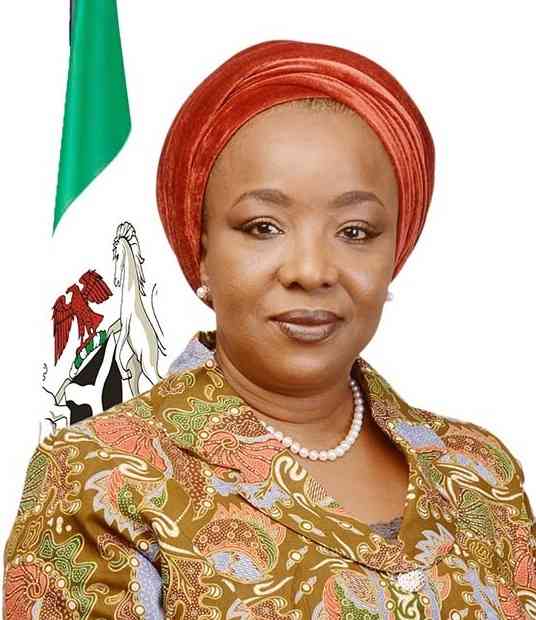
As Nigeria joins the rest of the world to mark the 2022 World Wetlands Day, the Minister of State for Environment, Barr. Sharon Ikeazor, has highlighted various interventions and programmes of government to conserve and restore Nigeria’s wetland ecosystem.
Speaking at the wetland’s commemoration themed “Wetland Action for People and Nature” at Baturiya Wetland, Hadejia, Jigawa State, she pointed out the significance of wetlands as a unique component of Nigeria’s ecosystem cannot be overemphasised.
“They are rich in biodiversity and play several functions, including water purification, water storage, processing of carbon and other nutrients, stabilisation of shorelines, and support of plants and animals. Under an effective and sustainably managed healthy ecosystem, they also play a vital role in addressing socio-economic challenges particularly through multi-sectoral job creation for millions of job seekers in sectors such as forestry, fisheries, agriculture and tourism,” she said.
The minister also said the resources attributed to the wetlands in Nigeria are highly valuable, as they contain fish, reptiles, mammals, amphibians and birds.
According to her, Nigeria’s endowment with wetlands stands out in Africa and is one of the internationally recognised wetlands in the world. The majority of these wetlands are found in the Niger Delta, Benue, the Chad Basin and along the entire coasts of Nigeria. While 11 of them have been designated as ‘Ramsar’ sites, the Hadejia-Nguru wetland is the first recorded as a ‘Ramsar’ site, as it is a wide expanse of floodplain wetlands situated in Jigawa and Yobe states in the northeast of Nigeria.
She, however, lamented that Nigeria’s wetland ecosystem is being threatened due to population pressure, poverty, deforestation, intensive cultivation, oil, gas and industrial waste pollution; coastal and marine erosion, overgrazing as well as climate change, stressing that this important component of the ecosystem is being lost at an alarming rate and “we must all recognise the need for urgent intervention”.
She reiterated that the destruction of wetlands is, therefore, a matter of concern as they are some of the most productive habitats on the planet. She said over time, overpopulation, climate change and infrastructural development have contributed to the degradation of wetlands ecosystems.
Ikeazor pointed out that this year’s theme is coming at a time when increased global ambitions and actions to tackle climate and environmental challenges are required to achieve global resilience and general well-being.
She maintained that the government has prioritised the livelihood enhancement of the local people living around wetlands. “We are conscious of the effects of climate change on their livelihoods, as is evident in the livelihoods’ component of our intervention in some of the wetland ecosystems in the country.”
According to the minister, under the ongoing Sustainable Management of Selected Critical Ecosystems intervention, Hadejia-Nguru Wetland was reforested with four hectares of fruit/tree orchards of economic species.
“This is in addition to the provision of livelihood enhancement and capacity development of the communities around the wetland which includes 1 water weed harvester machine, 5 fibre boats with 40HP engine, 25 wooden canoes with paddles, 1 fish pond (60X45 meter), 1,500 fingerlings for stocking of the pond and clearing of 51 kilometres of Typha grass to create channels linking several communities.
“This project is being extended to other parts of the country as our intervention is focused on the riparian communities of Maladumba Lake and forest reserve wetland in Bauchi State and Oguta Lake Wetland in Imo State.
“Apart from this, the Federal Government has just secured credit from the World Bank to implement agro-climatic resilience in semi-arid landscapes (ACReSAL) intended to help improve the sustainable management of drylands at scale in northern Nigeria. The project aims to restore critical ecosystems (including Hadejia-Nguru wetlands) and will be implemented over six years.
“You may be aware of Mr. President’s recent approval of the establishment of 10 additional national parks including Hadejia Wetland Game Reserve which will now be known as Hadejia Wetlands National Park. This implies that the country’s protected areas have been expanded to conserve our biodiversity, enhance ecosystem resilience, mitigate climate impacts and support the socio-economic development of the people. This expansion also contributes to the attainment of Sustainable Development Goals (SDGs), Post-2020 Global Biodiversity Framework Goals, Nationally Determined Contributions, Global Goals for Forests and others,” she added.


